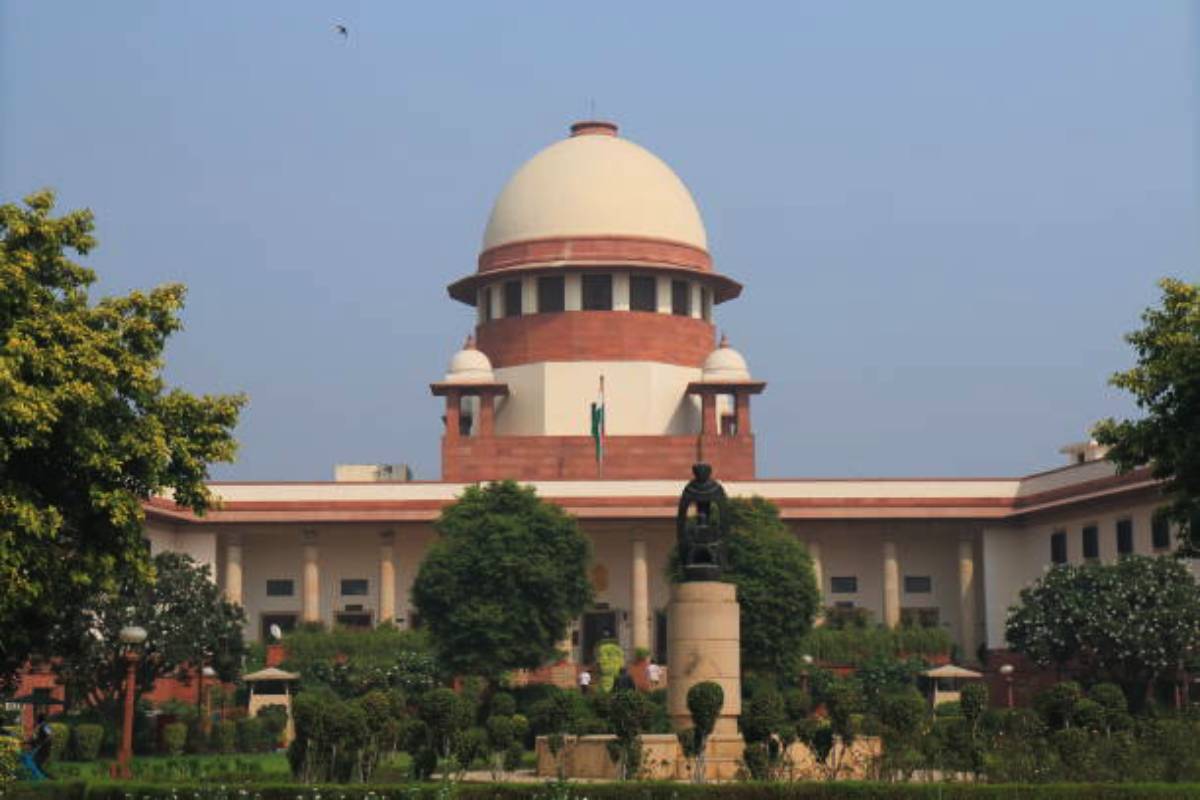The Delhi government has filed a petition in the Supreme Court challenging the National Green Tribunal’s (NGT) decision to appoint the Lieutenant Governor (LG) as the Chairman of the High-Level Committee on Yamuna.
The Delhi government has told the apex court that the NGT decision violates the Constitutional scheme of governance in Delhi as well as the 2018 and 2023 orders of a constitution bench of the court.
Advertisement
The NGT had established the committee through an order dated January 9, comprising various authorities in Delhi, to address the issue of Yamuna River pollution, with the LG, a mere figurehead of the state, as its chairman.
“The committee includes the chief secretary of Delhi, secretaries of the Irrigation, Forest and Environment, Agriculture, and Finance Departments of the Delhi government, the chief executive officer of Delhi Jal Board, the vice-chairman of the Delhi Development Authority, a representative from the Ministry of Agriculture, government of India, director-general of Forests or his nominee from the Ministry of Environment, Forest and Climate Change (MoEF & CC), a representative from the Ministry of Jal Shakti (MoJS) or MoEF & CC, the Director-General of the National Mission for Clean Ganga (NMCG), and the Chairman of the Central Pollution Control Board (CPCB),” the Delhi government said in the statement on Wednesday.
In its petition, the Delhi government has recognised the need for interdepartmental coordination to address Yamuna’s pollution and implement remedial measures, but it has strongly objected to the executive powers granted to the LG through the NGT’s order. These powers encroach upon areas exclusively under the competence of the elected government of Delhi.
In its appeal, the Delhi government contended that according to the administrative structure in Delhi and the provisions of Article 239AA of the Constitution, the LG serves as a nominal figurehead, except in matters pertaining to land, public order, and police, where the LG exercises powers delegated by the Constitution. The Delhi government acknowledged the importance of a coordinated approach, but it asserted that the language used in the NGT order sidelines the elected government. The plea explains that granting executive powers to an authority that lacks the constitutional mandate to possess them undermines the elected government’s rightful jurisdiction.
According to Article 239AA of the Constitution, the Lieutenant Governor is bound to act solely based on the aid and advice of the council of ministers, led by the Chief Minister. It has been a well-established constitutional principle for the past 50 years that the powers vested in a nominal and unelected head of state should only be exercised under the “aid and advice” of the Council of Ministers.
The Delhi government also highlighted that a Constitution Bench of the Supreme Court, in its judgement in the case of State (NCT of Delhi) v. Union of India (2018) 8 SCC 501, established that the elected government of NCT of Delhi possesses exclusive executive powers over all subjects in the State and Concurrent List, with the exception of “public order,” “police,” and “land.”
To this end, para 284.17 of the Supreme Court order issued on July 4, 2018 states, “The meaning of “aid and advise” employed in Article 239-AA(4) has to be construed to mean that the Lieutenant Governor of NCT of Delhi is bound by the aid and advice of the Council of Ministers and this position holds true so long as the Lieutenant Governor does not exercise his power under the proviso to clause (4) of Article 239-AA. The Lieutenant Governor has not been entrusted with any independent decision-making power. He has to either act on the “aid and advice” of the Council of Ministers or he is bound to implement the decision taken by the President on a reference being made by him.”
Further, para 475.20 of the same judgement reads that in a Cabinet form of Government, the substantive power of decision-making vests in the Council of Ministers with the Chief Minister as its head. “The aid and advice provision contained in the substantive 38 part of Article 239-AA(4) recognises this principle. When the Lieutenant Governor acts on the basis of the aid and advice of the Council of Ministers, this recognises that real decision-making authority in a democratic form of Government vests in the executive. Even when the Lieutenant Governor makes a reference to the President under the terms of the proviso, he has to abide by the decision which is arrived at by the President… There is no independent authority vested in the Lieutenant Governor to take decisions.”
Furthermore, a 5-judge Constitution Bench, in its order dated May 11 in Civil Appeal 2357 of 2017 (the Services judgment), upheld this position. It reiterated that, in light of Article 239AA and the 2018 SC Constitution Bench judgement, *the LG is bound by the aid and advice of the Council of Ministers of NCTD in matters falling within the legislative scope of NCTD
In its appeal, the Delhi government has further contended that the NGT’s proposed remedial measures, such as utilising treated water for agriculture, horticulture, or industrial purposes, preventing waste discharge and dumping, protecting floodplain zones, maintaining dredging flow, implementing plantations, and desilting drains, require budgetary allocations that are approved by the legislative assembly. Consequently, the role of the elected government becomes crucial in overseeing these measures. The appeal points out that the elected government is committed to addressing the issue of making Yamuna a clean river free from pollutants and allocating the necessary funds. However, the current scheme outlined in the NGT order establishes a committee led by an unelected figurehead, sidelining the elected and accountable government of NCTD. While an inter-agency committee is desirable for coordination purposes, it should be overseen by the elected head of government, the Chief Minister in this case, the plea says.
In conclusion, the Delhi government has requested the apex court to set aside the final order dated January 9 passed by the National Green Tribunal, Principal Bench, New Delhi, in Original Application No. 21 of 2023.











